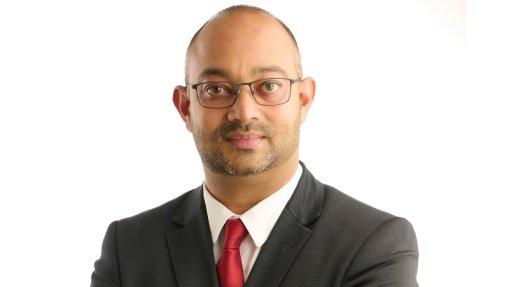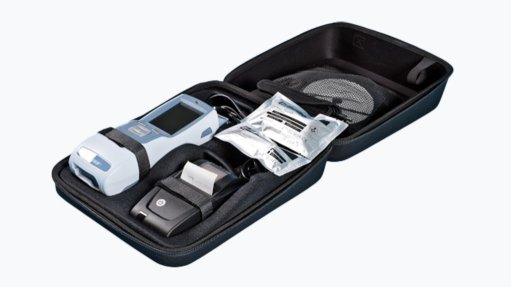Industry faces expertise shortage amid international competition


KEY PARTNERSHIPS Soteria's partnership with DroneShield enables Soteria to provide cutting-edge technology
The South African defence industry continues to grapple with diminishing skills availability amid a competitive market dominated by international defence companies.
However, increased government support could reinvigorate the industry, enabling it to compete on a global scale, says defence equipment specialist Soteria Advanced Technologies director Tom Roos.
Expertise and skills in the local defence industry have been severely affected by political, economic and social changes.
Roos attributes the diminishing skills availability, in part, to a lack of interest in military or related sectors among young engineers: there seems to be more focus and interest in the software sectors, compared with radio frequency and pure electronics designs.
Engineering students’ exposure to proof-of- concepts and in-field training is minimal, which also hinders their interest in pursuing such career paths.
Further, many South African engineers and other skilled personnel are choosing to work in countries such as the United Arab Emirates, Saudi Arabia, Canada, the US and the UK.
“Our top engineering students often leave the country after a few years, having attained some local experience,” Roos adds.
Another significant challenge impacting on the local industry is competing with international companies that can provide products and systems at lower prices.
“Most South African industries are not competitive from a pricing perspective,” says Roos.
Further, many international defence companies are supported by their governments through various initiatives.
For example, some international competitors often offer lower pricing structures, owing to their governments’ supporting their maritime, vehicle and aerospace sectors.
Although the local defence industry is developing innovative solutions, government support and investment in local industry is severely lacking. This adversely affects the development of new innovations, which, in turn, impacts on the industry’s ability to compete on a global scale.
Government can support the local defence industry in several ways, adds Roos.
These include restoring funding initiatives, creating dedicated defence research and innovation centres, and creating partnership and co-development laboratories with international entities such as South Africa’s Brazil, Russia, India and China partners.
Roos asserts that creating partnerships with international entities in particular can result in significant success. This can expose local engineers to international worksharing, with the aim of generating local content in international systems. Simultaneously, this approach allows international entities to market, promote and develop African footprints.
Roos calls for increased and enhanced higher-level support from military attachés, while government can also promote local defence companies as a gross domestic product-earning asset.
Productive Partnership
Soteria prioritises sourcing original-equipment manufacturers and suppliers that meet specific product criteria, delivering such solutions timeously and cost effectively.
Aligned with these values, Soteria is partnered with DroneShield as the official distributor of DroneShield’s solutions in Africa.
The demand for drone technologies is increasing on a global scale, which prompted Soteria to find a supplier ideally suited to the African market.
“DroneShield is one of the fastest-growing drone detection and defeat corporations worldwide,” adds Roos.
He says DroneShield has achieved global recognition for its “comprehensive and versatile portfolio” of solutions and offerings, including wearable, mobile, semi-fixed and fixed systems for applications ranging from protecting military operations, critical infrastructure, and mining operations to securing airports.
The partnership also enables Soteria to provide “cutting-edge” technology to address the evolving challenges posed by unmanned aerial vehicles.
Roos also highlights DroneShield’s software solutions, which provide planning tools for configuring any deployments for any of DroneShield’s drone detection and defeat solution products and/or a combination of products and systems.
These solutions use sophisticated artificial intelligence (AI) algorithms and are regularly updated to provide information on the latest drone threats and related equipment use.
Wearable Technologies
A significant trend in the defence industry is wearable technology. ‘Quick deploy’ and ‘on-the-move’ requirements have allowed Soteria to meet increased demand for wearable technologies.
“Wearable technologies provide crucial information about each soldier, including core and skin temperatures, acute stress and fatigue,” says Roos.
Soteria is partnered with Swiss-based Internet-of-Things wearable solutions developer Wearin’.
Wearin’s AI algorithms process such data and every soldier’s biometrics data is transmitted to a command control portal, enabling commanders to track soldiers’ position and assess their physical health conditions, either 24/7, while they are in actual combat or during training sessions.
This enables decision-makers to monitor stressors and redirect soldiers or the workforce to roles with which they are more comfortable.
Roos highlights the robust coded orthogonal frequency-division multiplexing (COFDM) meshed network tactical communication systems, which allow for a complete situational awareness on the battlefield and in operational areas. These systems facilitate “seamless” sharing of video, data and audio among all role-players in the air, and on land and sea.
Soteria is partnered with wireless communications technology specialist Domo Tactical Communications to offer COFDM-based software-defined radio solutions which also allow for secure connectivity in very harsh or challenging environments, such as tunnels, mines and buildings, and during shipboard deployments.
“Our military wearable technology solutions currently under a proof-of-concept project with local military company Global Command and Control Technologies allow for biometric information and connectivity to be displayed on an open application programming interface situational awareness display portal,” Roos notes.
Soteria also supports local research institutions that can offer future digital wearable solutions in the mining, military and law enforcement sectors. Planning for a further programme with a national research institute is currently under way.
Article Enquiry
Email Article
Save Article
Feedback
To advertise email advertising@creamermedia.co.za or click here
Press Office
Announcements
What's On
Subscribe to improve your user experience...
Option 1 (equivalent of R125 a month):
Receive a weekly copy of Creamer Media's Engineering News & Mining Weekly magazine
(print copy for those in South Africa and e-magazine for those outside of South Africa)
Receive daily email newsletters
Access to full search results
Access archive of magazine back copies
Access to Projects in Progress
Access to ONE Research Report of your choice in PDF format
Option 2 (equivalent of R375 a month):
All benefits from Option 1
PLUS
Access to Creamer Media's Research Channel Africa for ALL Research Reports, in PDF format, on various industrial and mining sectors
including Electricity; Water; Energy Transition; Hydrogen; Roads, Rail and Ports; Coal; Gold; Platinum; Battery Metals; etc.
Already a subscriber?
Forgotten your password?
Receive weekly copy of Creamer Media's Engineering News & Mining Weekly magazine (print copy for those in South Africa and e-magazine for those outside of South Africa)
➕
Recieve daily email newsletters
➕
Access to full search results
➕
Access archive of magazine back copies
➕
Access to Projects in Progress
➕
Access to ONE Research Report of your choice in PDF format
RESEARCH CHANNEL AFRICA
R4500 (equivalent of R375 a month)
SUBSCRIBEAll benefits from Option 1
➕
Access to Creamer Media's Research Channel Africa for ALL Research Reports on various industrial and mining sectors, in PDF format, including on:
Electricity
➕
Water
➕
Energy Transition
➕
Hydrogen
➕
Roads, Rail and Ports
➕
Coal
➕
Gold
➕
Platinum
➕
Battery Metals
➕
etc.
Receive all benefits from Option 1 or Option 2 delivered to numerous people at your company
➕
Multiple User names and Passwords for simultaneous log-ins
➕
Intranet integration access to all in your organisation



















